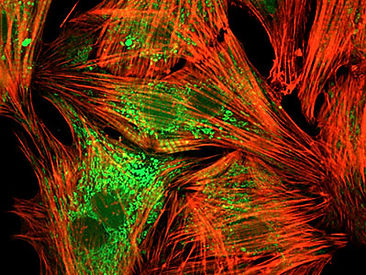
Stem Cell
One of the most controversial topics in stem cell researches is the embryonic stem cell research as it requires the destruction of embryo to derive embryonic stem cell line. This brings up the debate of whether or not that the destroying of embryos for researches is ethical.
There are two main arguments:
Does embryonic stem cells counts as life?
There are many arguments on the unclear definition of the start life. When does a life start? The answer can range from when the egg was fertilized to when the infant is born. So this unclear definition on the start of life leads to the next question; does the embryonic stem cell research equivalent to murder?
Argument against embryonic stem cell research:
Life starts when a sperm fertilized an egg. Therefore destroying embryo is equivalent of murdering. Also some people argued that destroying of embryo also violated the embryos’ right to choose.
Furthermore, even if the embryo that is used for embryonic stem cell research does not count as a life, they still have the potential to be a life.

[30] An Embryo
Argument supporting embryonic stem cell research:
Life begins with heart beat or brain activity. Before the embryonic stem cells start to differentiate into organs, it is no different and has no more personhood than a skin cell. Therefore embryonic stem cells are not equivalent to life.
In addition, the Supreme Court case, Roe v. Wade define that an embryo is equivalent to a life when it has the potential to be able to live outside of the womb.

[31] heart muscle stem cell
Embryonic Stem Cell
Another controversy is that whether or not the research and medical benefits can justify for the use of embryos for experiment. Some people believe that the pros and cons of embryonic stem cell research should be weighed out and do what is best for the majority. Others argue that no benefit can justify for the immoral aspect that the research posed.
Does research purpose justify for destroying embryos?
[33]

Argument against embryonic stem cell research:
Until now, embryonic stem cell research has brought only a few particle use. Compare to adult stem cell research that already brought medical benefit, embryonic stem cell research lack of proof to be useful. This makes it loses some of its public support and is used as an argument for calling an end to embryonic stem cell research.
[34]

Argument supporting embryonic stem cell research:
Embryonic stem cell can help scientist understand and find treatment for disorders such as Spinal cord injuries, Parkinson’s, and Alzheimer's. Additionally, as a new science, embryonic stem cell research’s potential cannot be predicted so if the research is put to a halt many medical break through will be eliminated.

[35]
Safety Issues
As a new science, embryonic stem cell has not yet been fully understood by scientist. Scientist are still missing the key to control the growth of embryonic stem cell so it can grow uncontrollably and may become cancer cells after transplant in to patient for therapy use. Also the majority of embryonic stem cell researches are done on animals to test therapy so scientists do not have enough information on applying embryonic stem cell therapy on human.
Another safety problem in embryonic stem cell therapy is the stem cell line may be contamanate in the process and carry diseases in to patient. The age of the stem cell line is also another safety concern because the older the stem cell line after derivation there will be a greater chance of the stem cell getting out of control.

[32]
(Citation 38) (Citation 39) (Citation 40)